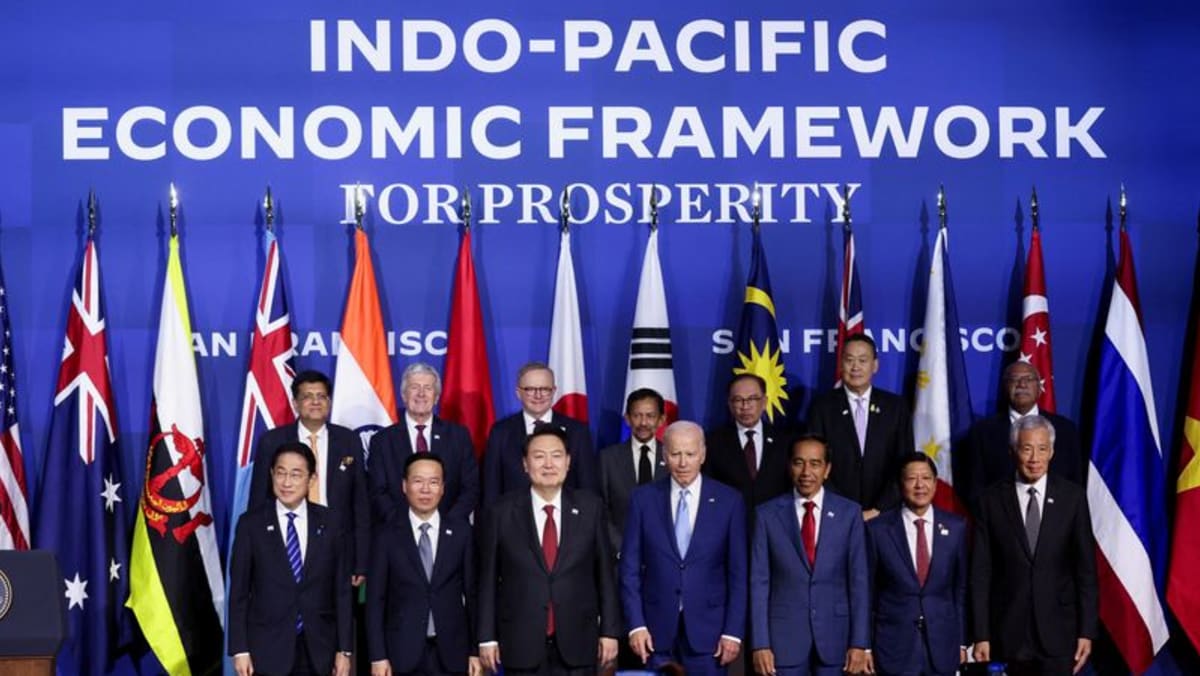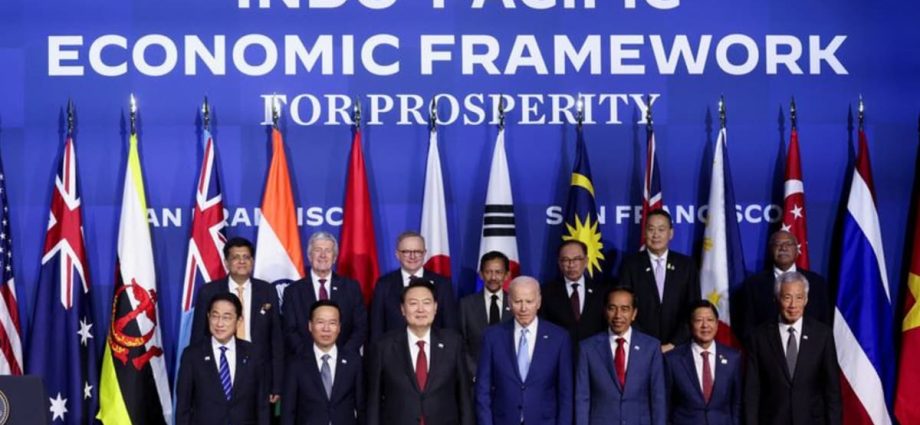
LIVING AND DYING BY DOMESTIC POLITICS
The IPEF was challenging to negotiate from the outset, its demands and constraints a product of US domestic politics.
The lack of access to the US market removed a key incentive from the American negotiating toolkit. It was an effort to avoid a sensitive political issue: American public opinion has become generally less supportive of free trade due to the perception that cheap foreign goods are displacing American products, especially in key swing states and unions.
Believing that “deep trade liberalisation” failed to protect American jobs and capacity, Biden’s administration bucked decades of free trade promotion to aggressively subsidise favoured industries in its competition with China. US$39 billion in manufacturing incentives was allocated under the CHIPS Act alongside US$370 billion in investments for clean energy under the Inflation Reduction Act to grow the US industrial base.
Meanwhile, labour and environmental standards were always a hard sell to partners such as Vietnam and Indonesia. These US demands tapped on these growing sentiments against free trade.
A common rallying call was that trade deals need to ensure strong labour and anti-dumping standards so American workers can compete on a “level playing field” – not just with Chinese workers, but with supply chains linked to China as well.
Yet, the IPEF was still vulnerable to the domestic forces it sought to appease. As a White House initiative, the IPEF was unlikely to garner financial support from a split Congress and could also be cancelled with a simple executive order by a future president.
Negotiators likely understood that the odds were stacked against them. The timeframe to complete IPEF negotiations was also relatively short at two years, compared to seven years for the TPP.
Ultimately, after months of disquieting rumours, the end came when the finish line was in sight. Pushback from lawmakers, such as Senator Sherrod Brown who is facing a tough re-election campaign, derailed negotiations on the trade pillar, leaving IPEF on life support.

